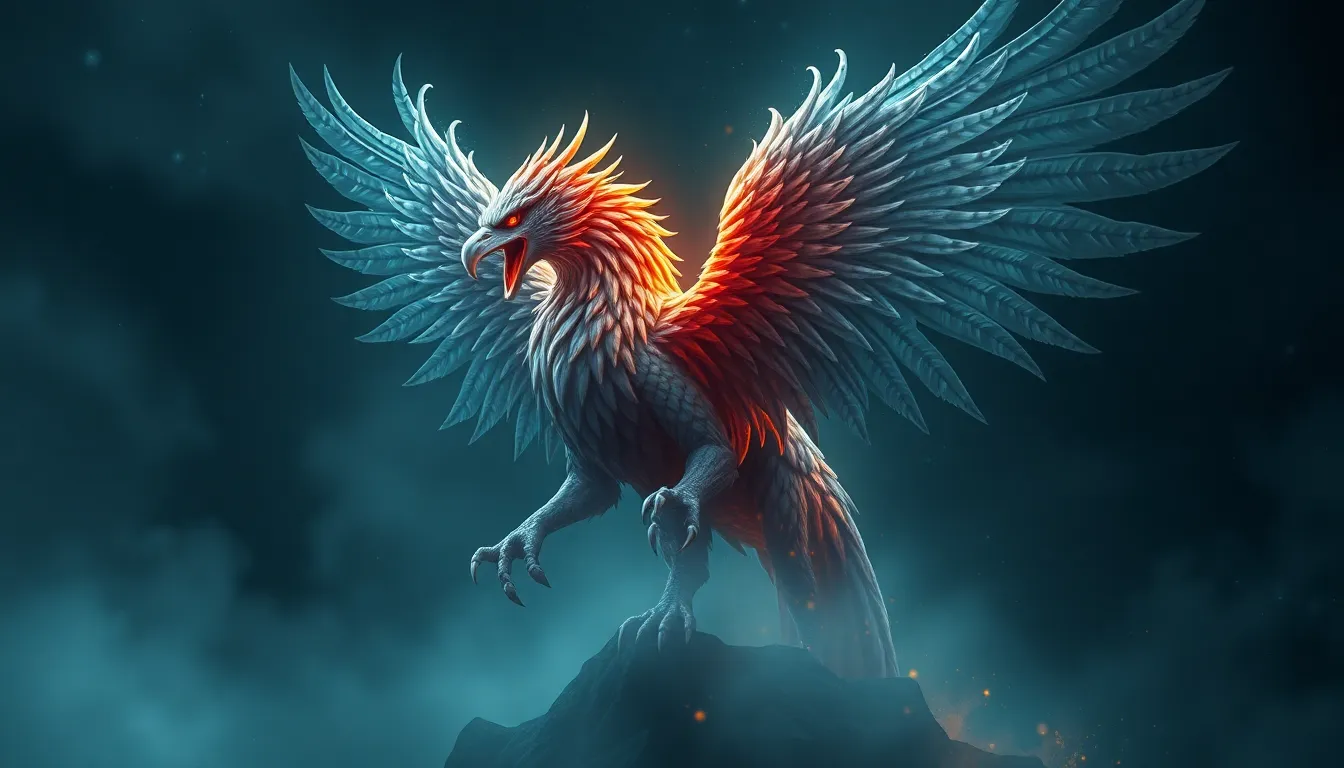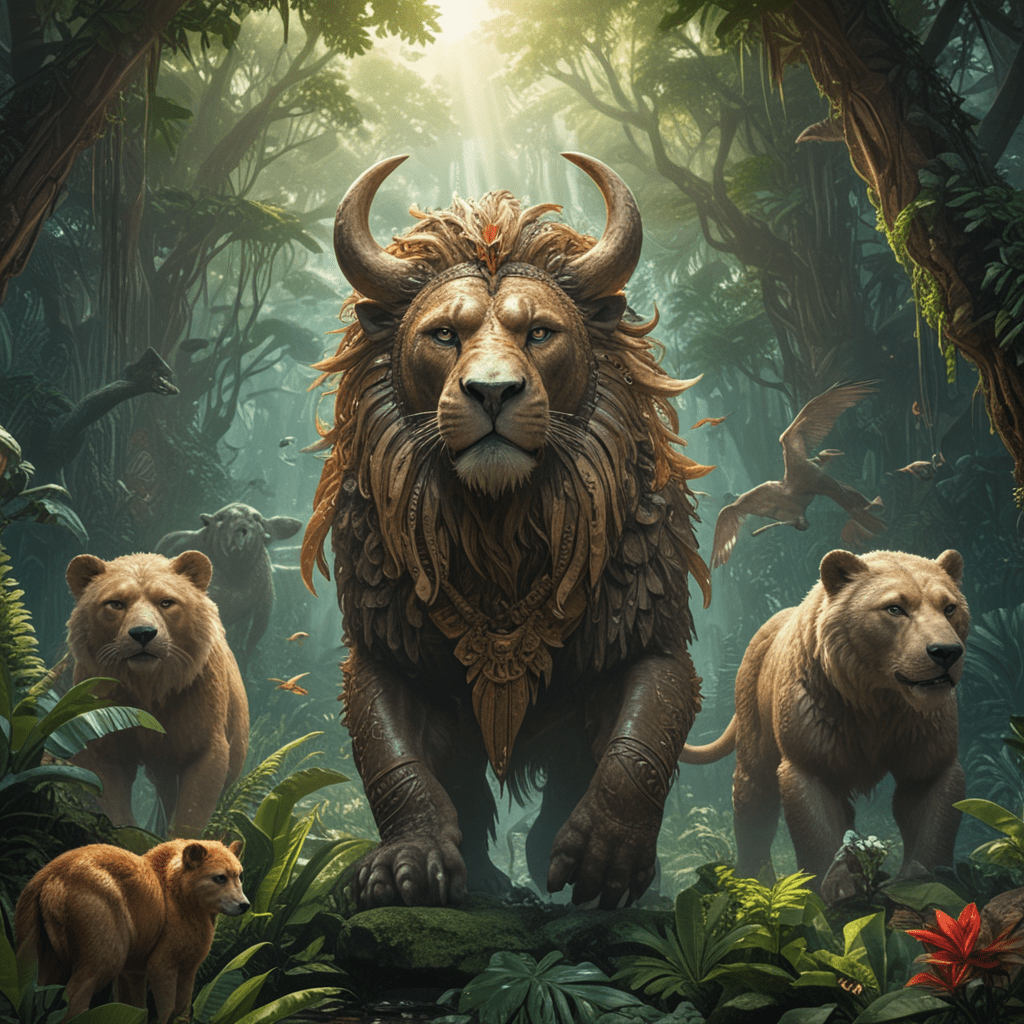The Heart’s Desire: Exploring Passion in Mythical Stories
I. Introduction
Passion and desire are central themes that resonate deeply within the fabric of mythology. Defined as intense emotional drives that compel individuals toward specific goals or experiences, these concepts often find their expression through the stories of gods, heroes, and mythical creatures. Mythological narratives serve as reflections of human emotions, providing a lens through which we can examine our own desires and passions.
The importance of mythical stories lies in their ability to transcend time and culture, capturing the essence of what it means to be human. They allow us to explore complex emotions, confront our desires, and understand the consequences that arise from them. In this article, we will delve into the multifaceted nature of desire in mythology, the archetypes of passionate characters, cross-cultural perspectives, and the enduring lessons these tales impart.
II. The Nature of Desire in Mythology
Desire has been interpreted in various philosophical ways across ancient cultures. Many viewed it as a fundamental driving force of human existence, shaping individual actions and societal norms.
- Philosophical interpretations: Ancient philosophers such as Plato and Aristotle examined desire, often contrasting it with rational thought.
- Desire in narratives: Mythical stories frequently depict desire as a catalyst for conflict, growth, and transformation.
- Contrasting desires: Myths often explore diverse forms of desire, including:
- Love – romantic and platonic connections
- Vengeance – the quest for retribution
- Power – the ambition to dominate or control
III. Archetypes of Passionate Characters
Throughout mythology, certain archetypes emerge that embody the complexities of passion and desire.
- The Hero: Often driven by love and ambition, heroes like Achilles or Hercules undertake great quests fueled by their desires.
- The Femme Fatale: Characters such as Circe or Cleopatra use seduction and manipulation, showcasing the darker sides of desire.
- The Fallen Hero: Figures like Orpheus exemplify how unchecked passion can lead to downfall, often resulting in tragedy.
IV. Cross-Cultural Perspectives on Desire
Exploring desire across cultures reveals both universal themes and unique interpretations.
- Greek mythology: Eros, the god of love, represents the complexities and dualities of desire, encompassing both beauty and chaos.
- Hindu mythology: Desire (Kama) is viewed in the context of dharma, highlighting the balance between personal desires and societal duties.
- Native American myths: Many stories emphasize a spiritual connection with nature, illustrating desire as intertwined with the natural world and communal relationships.
V. The Role of Conflict in Passionate Stories
Conflict is an essential element in narratives driven by passion, often manifesting in various forms.
- Internal vs. external conflicts: Characters may face internal struggles with their desires or external battles against opposing forces.
- Case studies: Famous myths like Orpheus and Eurydice showcase the tragic consequences of desire, where love leads to profound loss.
- Resolution of conflict: The outcomes of these conflicts often provide insight into the nature of desire and its consequences.
VI. The Symbolism of Desire in Mythical Narratives
Mythical narratives are rich in symbolism, particularly when it comes to desire.
- Common symbols: Fire often represents passion, while water can symbolize the fluidity of emotions.
- Enhancing understanding: These symbols deepen the narrative, inviting readers to explore the emotional undercurrents of desire.
- Mythical creatures: Beasts like dragons or sirens often embody human longing and the perils of unrestrained passion.
VII. The Consequences of Unfulfilled Desire
Unfulfilled desires frequently lead to tragic outcomes in mythology, offering valuable moral lessons.
- Tragic outcomes: Characters such as Phaedra and Achilles illustrate the devastating effects of unattainable desires.
- Moral lessons: Myths often convey that unfulfilled passion can lead to suffering and destruction.
- Cultural impact: These stories continue to influence contemporary narratives, emphasizing the timeless nature of desire and its consequences.
VIII. Modern Interpretations of Mythical Passion
In today’s society, the reinterpretation of mythical passions can be seen across literature and media.
- Contemporary literature: Authors often draw on ancient myths to explore modern themes of love and desire.
- Relevance in society: The stories of passion resonate with current struggles, reflecting the timeless quest for connection.
- Case studies: Films and novels that adapt these myths, such as “The Last Temptation of Christ” or “Circe” by Madeline Miller, highlight the enduring allure of these narratives.
IX. Passion and Its Reflection in Human Relationships
The exploration of desire in mythology provides insights into human relationships and psychology.
- Psychology of desire: Myths reveal the complexities of human emotions and the motivations behind our actions.
- Lessons on relationships: The dynamics presented in these stories offer valuable lessons on love, loss, and reconciliation.
- Influence on modern dynamics: These narratives shape how we perceive and engage in our own relationships, often mirroring the challenges faced by mythological characters.
X. Conclusion
In conclusion, the significance of passion in mythical stories cannot be overstated. These tales encapsulate the complexities of human desires, offering timeless insights into love, ambition, and the conflicts that arise from our deepest longings. As we continue to explore these narratives, we find that the heart’s desires revealed in mythology resonate profoundly with our own experiences, illustrating the enduring nature of passion across cultures and eras.




